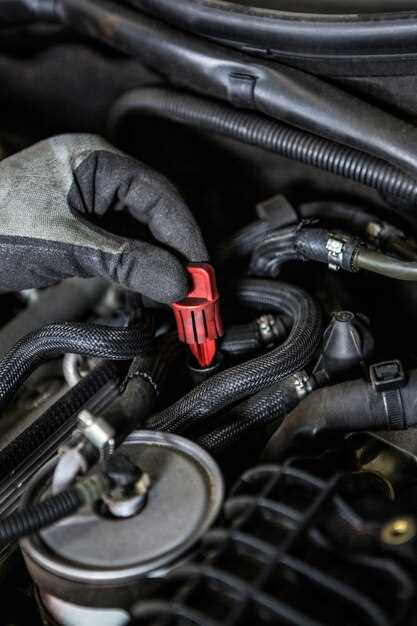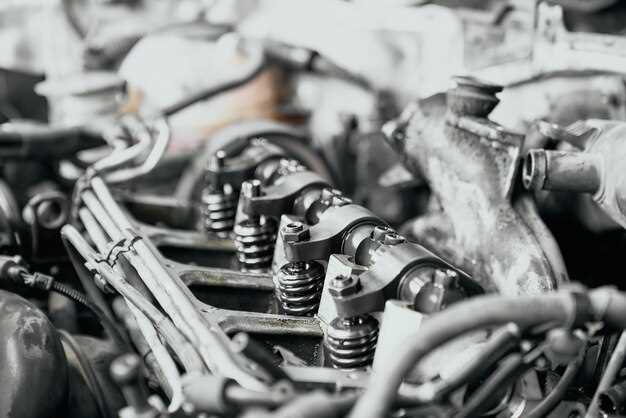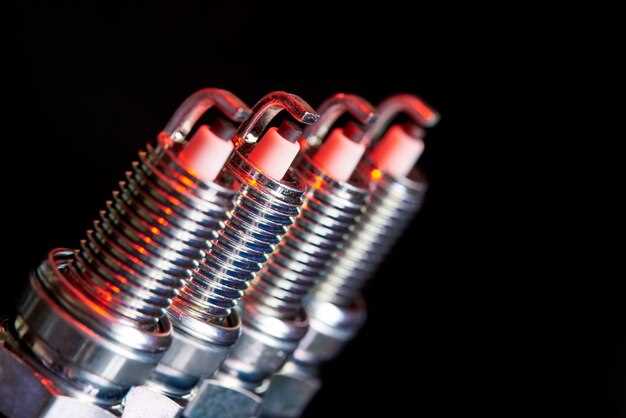
In the world of automotive engineering, ignition systems play a pivotal role in determining the overall performance of a vehicle. Among the most critical components of this system are the plugs, which are responsible for igniting the air-fuel mixture in the engine’s combustion chamber. High-performance engines often demand specialized spark plugs that can withstand extreme conditions while providing optimal energy output.
Choosing the right spark plugs is essential for maximizing the efficiency and power of a high-performance engine. Unlike conventional plugs, which may suffice for standard vehicles, performance-oriented plugs are designed with advanced materials and engineering techniques to enhance durability, improve throttle response, and deliver a more robust spark. This article delves into the best options available on the market, emphasizing features that cater specifically to high-performance applications.
Whether you’re a racing enthusiast or simply looking to upgrade your vehicle’s performance, understanding the intricacies of spark plugs will empower you to make informed decisions. From platinum and iridium options to the latest technological innovations, this guide aims to provide insights that will help you unleash the true potential of your engine.
Choosing the Right Spark Plug Material for Optimal Performance

Selecting the appropriate spark plug material is crucial for maximizing the performance of high-performance engines. Different materials offer unique characteristics that can significantly impact engine efficiency, ignition quality, and overall durability. Here are the primary materials used in spark plugs:
- Copper:
- Excellent conductivity allows for quick heat dissipation.
- Offers a low-cost option, making it popular for budget builds.
- However, copper plugs wear out faster and may not perform well under extreme conditions.
- Platinum:
- More durable than copper, platinum spark plugs last longer.
- Superior wear resistance leads to consistent performance over time.
- Ideal for engines with higher compression ratios and advanced ignition systems.
- Iridium:
- Offers the best durability with a very high melting point.
- Provides excellent ignition efficiency and faster throttle response.
- Often recommended for racing and high-performance applications due to long lifespan.
- Nickel:
- Commonly used as a coating on electrodes for its corrosion resistance.
- Provides decent performance but falls behind platinum and iridium in longevity.
- Suitable for standard performance use rather than high-demand applications.
When choosing a spark plug, consider the following factors:
- Engine Type: Match the spark plug material to your engine’s specific requirements.
- Operating Conditions: Assess whether your engine will be subject to high temperatures and pressures.
- Manufacturer Recommendations: Follow the OEM specifications for materials to ensure compatibility and performance.
- Maintenance Frequency: Determine how often you want to change spark plugs based on material longevity.
In high-performance settings, iridium plugs often emerge as the optimal choice due to their unmatched durability and efficiency. Always weigh the benefits against the potential costs to find the best spark plugs that suit your engine’s needs.
Understanding Heat Range and Its Impact on Engine Functionality
The heat range of spark plugs is a critical factor in the performance and efficiency of high-performance engines. It refers to the spark plug’s ability to dissipate heat from the combustion chamber. An optimal heat range ensures that the spark plug operates at the right temperature for efficient combustion.
If the heat range is too low, the spark plug may run too hot, potentially leading to pre-ignition or engine knocking. This can cause severe damage to engine components. Conversely, if the heat range is too high, the spark plug may not reach a temperature sufficient to keep itself clean, leading to fouling and misfires.
Selecting the correct heat range involves considering engine modifications, tuning, fuel type, and operating conditions. High-performance engines, often running at increased temperatures and pressures, typically require spark plugs with a lower heat range. This facilitates better heat dissipation, preventing overheating while ensuring optimal combustion efficiency.
Moreover, spark plugs with a balanced heat range contribute to improved ignition timing and enhanced engine responsiveness. It is essential to match the spark plug’s heat range to the engine’s specific requirements to maximize performance and longevity. In summary, understanding heat range is vital for selecting the best spark plugs to enhance engine functionality and reliability.
Installation Tips for Maximizing Spark Plug Lifespan in Racing Conditions

To achieve optimal performance and longevity from your spark plugs in high-stress racing environments, meticulous installation is crucial. Start by ensuring that the engine is cool to avoid damaging the plugs during installation. Always use a proper torque wrench to tighten the plugs to the manufacturer’s specifications. Over-tightening can lead to thread damage, while under-tightening may cause poor ignition performance.
Before installation, inspect the threads and the ceramic insulator of each plug for any signs of wear or damage, as these can significantly impact ignition efficiency. Applying a small amount of anti-seize compound to the threads can also enhance future removability, although be cautious not to apply it to the electrode area.
Ensure that the gap between the electrodes matches the specifications for your specific engine setup. An incorrectly set gap can result in misfires and reduced power. Regularly monitor plug gaps during maintenance, as racing conditions can alter them more quickly than in standard driving.
During installation, position the plug straight into the cylinder head to prevent cross-threading. Hand-tighten the plug initially before using a torque wrench for final tightening. This method lowers the risk of damaging the threads and ensures correct alignment.
After installation, pay attention to the ignition system’s performance. A well-maintained ignition system enhances spark plug life, making it critical to regularly check coil performance and ignition timing. High-voltage coils can cause excessive wear on plugs, so choose compatible ignition components that work harmoniously with your selected plugs.
Finally, frequent monitoring and replacement of spark plugs between races can prevent performance degradation and contribute to a more reliable ignition system. Keeping a record of spark plug condition will help in understanding how your specific engine and racing conditions affect plug lifespan.






